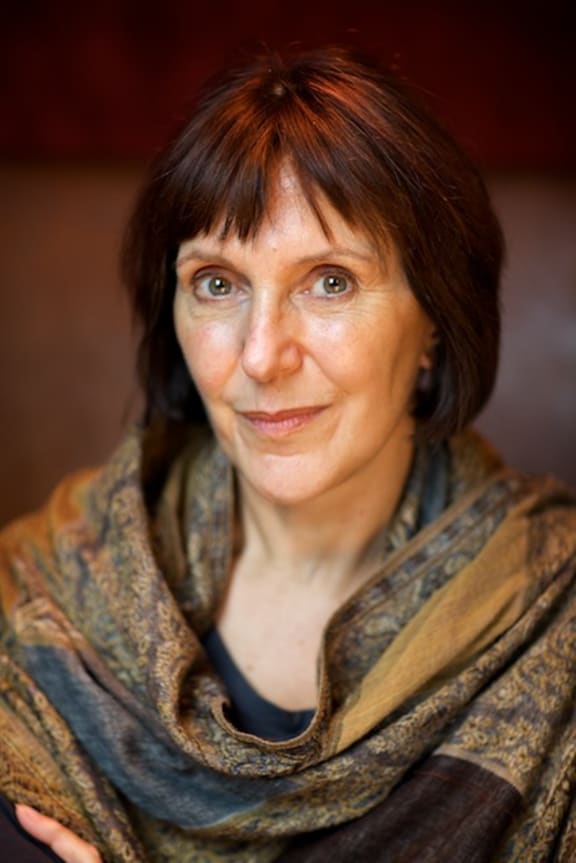British writer Marina Lewycka found fame in her late 50s with her debut novel A Short History of Tractors in Ukrainian – inspired by the experience of her Ukranian refugee parents.

Marina Lewycka Photo: Ben McMillan
The book was a very funny, but dark take on a gold-digging Ukrainian who snares an elderly widower for his British passport. It has been translated into around 30 languages.
Marina Lewycka latest novel – her fifth – is another black comedy. The Lubetkin Legacy is set in the bland suburban streets of North London, where the middle-aged actor Berthold Sidebottom resorts to desperate measures to keep his home.
Read an edited snapshot of the conversation:
Marina Lewycka: To succeed you have to be persistent and you have to be lucky. I think lots of people have got good books in them. They just need to find the right moment and the right reader and off they go.
Kathryn Ryan: What was particular about A Short History that factored into that timing?
ML: I think one of the things is that I did an English degree at university. And I had my models, Jane Austen, George Eliot, Dickens… And I somehow thought that’s how you had to be to be a writer – with long perfectly formed sentences and lots of adjectives, deep and meaningful. And actually what really made the breakthrough for me was learning to be funny. In the end, by the time I’d reached my 50s I thought nobody is going to publish anything I’ve written. So I may as well just give up and have a bit of fun. And that’s when I wrote Tractors and people really enjoyed it…
KR: What an interesting insight, that people who want to become a published writer can try too hard.
ML: You can try too hard and you have to find your own authentic voice, really.
KR: There’s something else about life and certain points in life where just having fun and having a laugh becomes okay again. Was that something else that was happening for you at that time?
ML: I think especially for older women. As you get older, more and more of life’s problems just fall away, and you can actually enjoy life much more. And you can also see the funny side of many things which seemed dreadful and catastrophic when you were young.
KR: How much did your parents story matter to you? What was the driving force in trying to tell it, even if you didn’t quite know how you would tell it [in A Short History of Tractors in Ukrainian]
ML: There was a lot about my parents’ story that I didn’t know. Because when I was a child they tried to protect me, really, from the horror of some of it, from the really awful things that they’d experienced and seen. So I sort of grew up knowing that there was a dark secret. And knowing that my sister knew what the dark secret was but I didn’t know. So I became determined to find out.
But actually by the time I came to write the novel my parents were both dead and all I had was a tape that I’d made with my mother. I sat down with her a few years before she died to make this tape, which I knew would be the basis of the novel. But when I came to transcribe the tape and write the story, I realised that there really wasn’t enough there to write a book about and I was going to have to make things up. And that’s when it changed from being a memoir, a personal story, to being really a work of fiction.
KR: When you reflect now on this intimate act of you recording your mother’s intimate memories and experiences what at that stage of her life did she say of the life she’d led and what they’d been through?
ML: When I was a young girl and she talked about their life in rural Ukraine it was all about how they fed the animals and how the snow came up to the eaves of the house in the winter and they had to make a passage through to the barn. But when I was an adult and she spoke to me she spoke about the famine and how they’d survived by eating the thatches on the roof and chewing harness leather. And that she’d both cholera and typhoid and nearly died several times. People in their village had eaten dead children, basically. You have to say that. It was a terrible, terrible time. But by the time I’d spoken to my mother it was history, it was in the past. And somehow by the time I discovered this I was in my 40s and I could take it. I think as a young girl I would have been too shocked.

